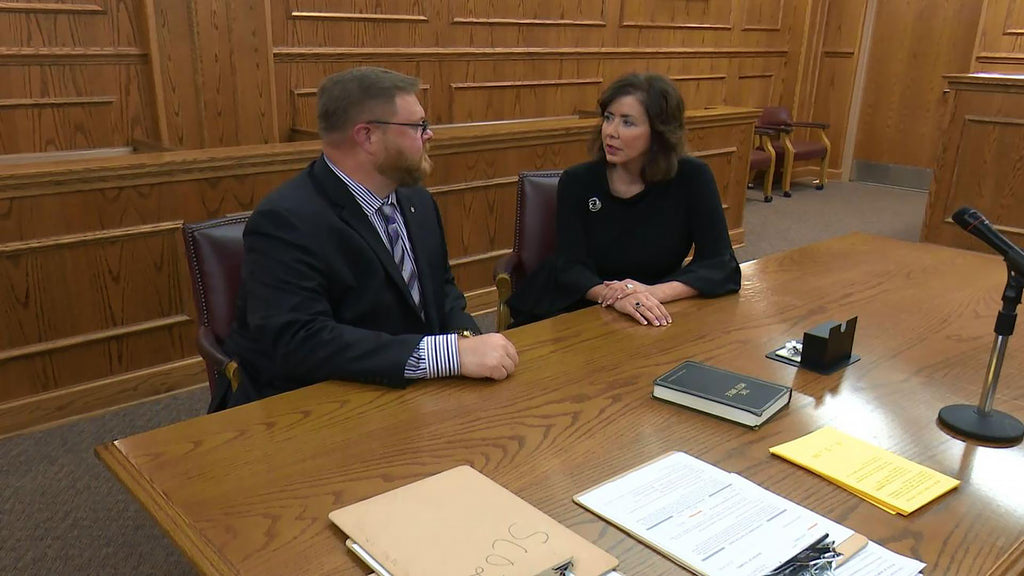
Marriage is a complex and multifaceted institution that involves a myriad of emotions, responsibilities, and, at times, conflicts. In the realm of legal considerations, questions may arise about the boundaries between personal relationships and the law. One such question that has surfaced is whether a husband can sue his wife for slander. We embark on an exploration of the legal intricacies surrounding spousal slander, examining the elements of defamation, potential consequences, and the impact on marital relationships. The aim is to unravel the complexities of these legal dilemmas while acknowledging the delicate balance required to navigate such situations within the framework of marriage.
Understanding Defamation and Slander
Before delving into the specifics of whether a husband can sue his wife for slander, it's crucial to understand the legal concepts of defamation and slander. Defamation refers to the act of making false statements about an individual that harm their reputation. It encompasses both oral (slander) and written (libel) statements. Slander specifically pertains to spoken defamatory statements.
For a statement to be considered defamatory, it generally must meet the following criteria:
False Statement:The statement in question must be false. Truth is generally a complete defense against a defamation claim.
Publication:
The false statement must be communicated to a third party, leading to its publication. This means that the statement is shared with someone other than the person making it and the subject of the statement.
Harm:
The false statement must cause harm to the reputation of the individual. Harm may be in the form of damage to one's personal or professional reputation, leading to tangible losses.
Fault:
In some cases, the individual making the false statement must have acted with some degree of fault, such as negligence or actual malice, depending on the context.
Spousal Privilege and Defamation
Spousal privilege is a legal concept that generally protects communications between spouses from being disclosed in legal proceedings. This privilege is designed to foster open and honest communication within marriages. However, the extent of spousal privilege varies, and there are exceptions, especially when it comes to issues of criminal or fraudulent activities.
In the context of defamation, spousal privilege may not always serve as an absolute shield. While statements made between spouses during private conversations may be protected, defamatory statements made outside the confines of private communication could potentially be subject to legal action.
Can a Husband Sue His Wife for Slander?
The question of whether a husband can sue his wife for slander is complex and depends on various factors, including jurisdiction, the nature of the statements, and the impact on the husband's reputation. Here are some key considerations:
Jurisdictional Variations:Laws regarding defamation can vary significantly between jurisdictions. In some places, spousal immunity may extend to cover defamation claims, while in others, it may not provide absolute protection. It is essential to consult local laws to understand the specific implications in a given jurisdiction.
Public vs. Private Statements:
The context in which the defamatory statements are made plays a crucial role. Private conversations between spouses are more likely to be protected by spousal privilege. However, if the statements are made publicly or shared with third parties, they may be subject to legal scrutiny.
Actual Malice:
In some jurisdictions, proving actual malice on the part of the spouse making the defamatory statements could be a prerequisite for a successful defamation claim. Actual malice typically involves knowingly making false statements with the intent to harm the other person's reputation.
Impact on Reputation:
The husband must demonstrate that the defamatory statements have caused harm to his reputation. This harm could be tangible, such as damage to his professional standing or personal relationships.
Defenses Available:
Defamation claims are subject to various defenses, including truth, privilege, and consent. If the statements made by the wife are true, for example, they may serve as a complete defense against a defamation claim.
Consequences of Defamation Claims Within Marriage
Bringing a defamation claim within a marital relationship can have profound consequences, not only legally but also on the emotional and relational aspects of the marriage. Some potential outcomes and considerations include:
Strained Relationships:Legal action within a marriage can lead to heightened tensions and strained relationships. Defamation claims may exacerbate existing conflicts and create additional barriers to effective communication.
Impact on Children:
Children within the family may be affected by the legal proceedings, witnessing the challenges and conflicts between their parents. The emotional toll on children should be carefully considered when contemplating legal action within a family.
Financial Implications:
Defamation lawsuits can be costly in terms of legal fees and potential damages. Couples should weigh the financial implications and consider alternative dispute resolution methods, such as mediation, to minimize the economic burden.
Potential for Reconciliation:
In some cases, couples may choose to pursue marital counseling or mediation instead of legal action. This can provide an opportunity for open communication, understanding, and potentially rebuilding trust within the marriage.
Long-Term Consequences:
Legal actions within a marriage can have long-term consequences. Even if successful, a defamation claim may not repair the emotional damage caused by the statements, and the aftermath could impact the future of the relationship.
Final Words
The question of whether a husband can sue his wife for slander involves a delicate balance between legal considerations and the intricacies of marital relationships. While legal remedies exist for defamation claims, couples should carefully weigh the potential consequences and explore alternative avenues for resolution.
Open communication, counseling, and mediation can be valuable tools for addressing conflicts within a marriage without resorting to legal action. Ultimately, the decision to pursue a defamation claim should be made with a thorough understanding of the legal landscape, the potential impact on the relationship, and a consideration of alternative paths toward resolution.
In the final analysis, fostering healthy communication, mutual understanding, and a commitment to resolving conflicts constructively can contribute to the resilience of a marriage, allowing couples to navigate challenges and rebuild trust for a more harmonious future.
